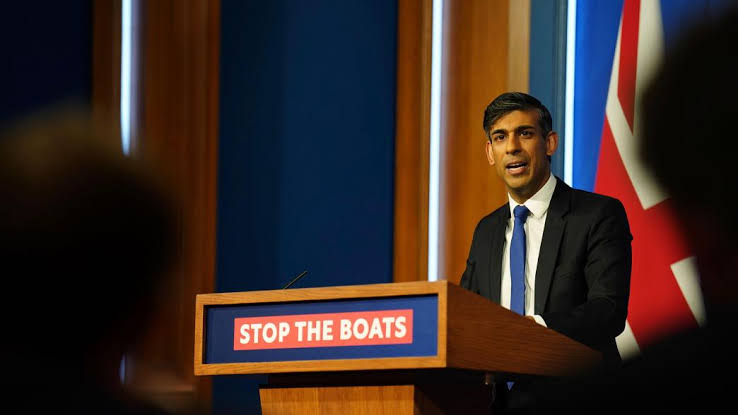Following the passage of the “Safety of Rwanda” Bill by the UK Parliament, the UN High Commissioner for Refugees, Filippo Grandi, and the UN High Commissioner for Human Rights, Volker Türk, have raised concerns about the impact of the bill on global responsibility-sharing, human rights, and refugee protection. The bill, which aims to transfer failed asylum seekers to Rwanda, has sparked debate and criticism from various quarters.
UN’s Concerns:
Grandi and Türk have called on the UK government to reconsider its plan and instead focus on practical measures to address irregular flows of refugees and migrants, based on international cooperation and respect for human rights. They expressed concerns about the safety and well-being of asylum seekers in Rwanda, questioning the adequacy of provisions for housing, healthcare, and basic needs, as well as the lack of mechanisms for protecting asylum seekers from discrimination and exploitation.
UK Supreme Court’s Findings:
The Safety of Rwanda (Asylum and Immigration) Bill was introduced after the UK’s Supreme Court found last year that the proposed transfer of asylum-seekers to Rwanda would breach international and UK law. Despite this, the bill and the accompanying treaty with Rwanda do not address the protection gaps identified by the Supreme Court. This raises questions about the UK government’s commitment to upholding its legal and moral obligations to protect asylum seekers and refugees.
Advocacy Groups’ Response:
Advocacy groups, including the Helen Bamber Foundation and Amnesty International UK, have strongly condemned the bill, calling it cruel and ineffective. They argue that sending refugees to Rwanda is a violation of international law and fails to address the root causes of migration. They also criticize the bill for restricting access to legal remedies and limiting the ability of asylum seekers to challenge removal decisions.
Legal Challenges and Costs:
Lawyers representing asylum seekers have vowed to challenge the bill in court, raising concerns about the lack of judicial scrutiny over removal decisions. The bill is expected to cost £1.8m for each of the first 300 deportees, according to the National Audit Office. Despite the cost, the government is determined to proceed with the deportation flights to Rwanda.
In Conclusion:
The passage of the Safety of Rwanda Bill represents a significant shift in UK immigration policy, raising questions about its impact on human rights and international obligations. As the government prepares to implement the bill, it faces legal challenges and criticism from advocacy groups and UN leaders. It remains to be seen how the UK will address these concerns and ensure the protection and well-being of asylum seekers affected by the bill.
Sources:

Leave a Reply
You must be logged in to post a comment.